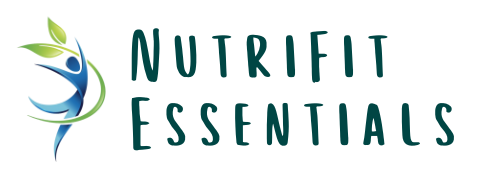Vitamins and Benefits are organic compounds that are vital for various physiological processes and maintaining optimal health. They are involved in numerous bodily functions, including energy production, immune defense, and cellular repair. Despite being required in small quantities, vitamins are indispensable for growth, development, and overall well-being. This comprehensive guide delves into the essential Vitamins and Benefits, sources, and tips for ensuring adequate intake.
Understanding Vitamins and Their Roles
Vitamins are classified into two categories: water-soluble and fat-soluble. Each category has unique characteristics and roles in the body:
Water-Soluble Vitamins: These include the B-vitamin complex and vitamin C. They dissolve in water and are not stored in the body, requiring regular intake through diet. Excess amounts are excreted in urine, reducing the risk of toxicity.
Fat-Soluble Vitamins: These include vitamins A, D, E, and K. They are stored in the body’s fatty tissues and liver, which means they do not need to be consumed as frequently as water-soluble vitamins. However, they can accumulate to toxic levels if taken in excessive amounts.

Essential Vitamins and Their Benefits
Vitamin A
- Benefits: Vitamin A is crucial for maintaining healthy vision, skin integrity, and immune function. It also plays a role in cellular communication and reproductive health.
- Sources: Rich sources include carrots, sweet potatoes, spinach, and animal-derived foods such as liver and dairy products.
- Deficiency: Lack of vitamin A can lead to night blindness, dry skin, and increased susceptibility to infections.

Vitamin B Complex
The B-vitamin complex consists of eight distinct vitamins, each with unique functions:

Vitamin B1 (Thiamine): Supports energy metabolism and nervous system health. Found in whole grains, pork, and legumes.
Vitamin B2 (Riboflavin): Involved in energy production and skin health. Sources include eggs, dairy products, and green leafy vegetables.
Vitamin B3 (Niacin): Essential for DNA repair and metabolic processes. Found in poultry, fish, and fortified cereals.
Vitamin B5 (Pantothenic Acid): Supports the synthesis of coenzyme A, critical for fatty acid metabolism. Sources include mushrooms, avocados, and chicken.
Vitamin B6 (Pyridoxine): Important for amino acid metabolism and red blood cell production. Found in bananas, chickpeas, and potatoes.
Vitamin B7 (Biotin): Supports carbohydrate and fat metabolism. Found in eggs, nuts, and soybeans.
Vitamin B9 (Folate): Vital for DNA synthesis and cell division, especially crucial during pregnancy. Sources include leafy greens, legumes, and fortified grains.
Vitamin B12 (Cobalamin): Essential for neurological function and red blood cell formation. Found in animal products like meat, fish, and dairy.
- Deficiency: B-vitamin deficiencies can lead to anemia, fatigue, neurological disorders, and skin issues.
Vitamin C
- Benefits: An antioxidant that supports immune health, collagen synthesis, and wound healing. It also enhances iron absorption from plant-based foods.
- Sources: Citrus fruits, strawberries, bell peppers, and broccoli are rich sources.
- Deficiency: Scurvy, characterized by bleeding gums, fatigue, and joint pain, results from a lack of vitamin C.
Vitamin D
- Benefits: Essential for calcium absorption and bone health. It also plays a role in immune function and inflammation regulation.
- Sources: Sun exposure enables the body to produce vitamin D. Dietary sources include fatty fish, fortified dairy products, and egg yolks.
- Deficiency: Can lead to rickets in children and osteomalacia in adults, causing weak bones and skeletal deformities.

Vitamin E
- Benefits: Acts as an antioxidant, protecting cells from oxidative damage. It supports skin health and immune function.
- Sources: Nuts, seeds, spinach, and vegetable oils are excellent sources.
- Deficiency: Rare but can cause nerve and muscle damage.
Vitamin K
- Benefits: Crucial for blood clotting and bone metabolism.
- Sources: Leafy greens, broccoli, and Brussels sprouts are rich in vitamin K.
- Deficiency: Can lead to excessive bleeding and weakened bones.
Tips for Optimal Vitamin Intake
Diverse Diet: Consume a variety of foods to ensure a broad spectrum of vitamins. Emphasize whole foods, including fruits, vegetables, whole grains, lean proteins, and healthy fats.
Mindful Cooking: Some vitamins, like vitamin C, are sensitive to heat and can be lost during cooking. Opt for steaming or eating raw when possible.
Supplement Wisely: Supplements can help fill nutritional gaps but should not replace a balanced diet. Consult a healthcare professional before starting any supplement regimen.
Monitor Special Needs: Certain populations, such as pregnant women, older adults, and vegans, may have specific vitamin needs. For example, vitamin B12 is primarily found in animal products, so vegans may need supplements or fortified foods.
Regular Check-Ups: Regular health check-ups and blood tests can help identify any vitamin deficiencies and guide dietary adjustments.

Common Myths About Vitamins

More is Better: Excessive intake of certain vitamins, particularly fat-soluble ones, can be harmful. Balance is key.
Vitamins Cure Illnesses: While vitamins support health, they are not cures for diseases. A healthy lifestyle, including diet, exercise, and medical care, is essential.
Supplements Are Always Necessary: A well-balanced diet can often provide all necessary vitamins. Supplements are beneficial when dietary intake is insufficient.
Conclusion
Understanding the role of Vitamins and Benefits is essential for maintaining optimal health and wellness. By consuming a balanced diet rich in diverse nutrients and considering supplementation when necessary, you can support your body’s needs and promote long-term health. Embrace the power of vitamins and make informed choices to enhance your well-being.

